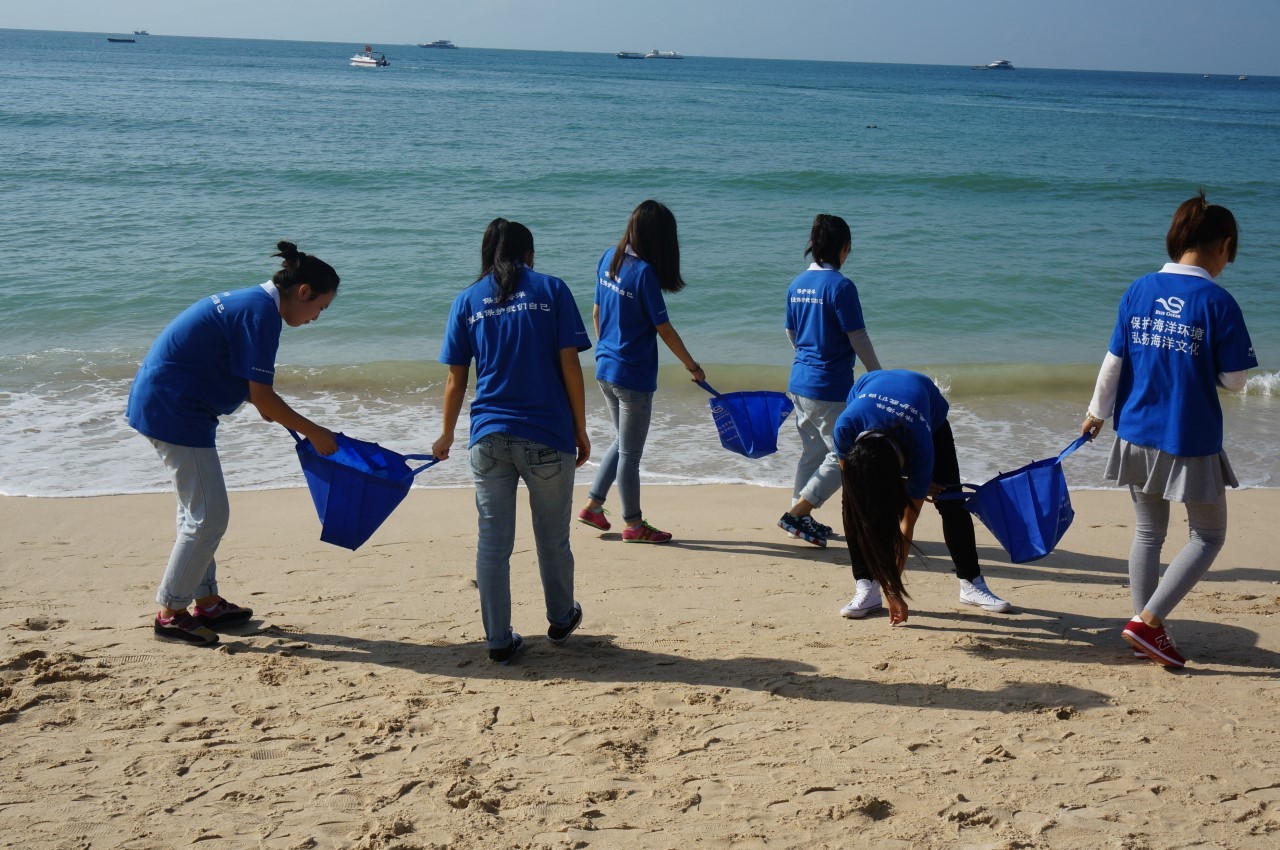Ying Wang
On November 7, 2020, I joined a group of colleague students on a public beach in the north coast of Hainan province, China. It was a Sunday after the region was hit by a powerful typhoon. The beach was covered with garbage and debris, which we were there to clean up. But this event was also part of a scientific project.
The volunteers were separated into small groups and received training on the harms of garbage before cleaning up the beach. They were asked to sort the garbage into four categories: woods, textures, glasses and plastics, and to report the total weight of each category to the organizers. The organizers incorporated games and quizzes in the activity to teach the volunteers knowledge about marine environmental protection. The data collected through the clean up will be used in the following up research, such as the national marine plastics monitoring project.
From what I observed, most of the plastics on the beach were plastic bottles and lids. The
volunteers also found a large amount of beer bottles and cigarette butts in the woods near the beach. The local residents like to barbecue on the beach at night. I also saw tourists and families walking along the beach and swimming in the ocean. The beach is an important place for family and community entertainment activities. Without proper guidance, people left behind garbage and may harm the environment that provides them enjoyment.
Over the past decades, there has been a growing public awareness of the rapid increase of anthropogenic debris in the ocean, and varying level of harm that this is having on human and wildlife communities. According to the latest scientific estimates, approximately 4.8 to 12.7 million metric tons plastics enter the ocean every year. Citizen scientists are viewed as potentially playing an important role in scientific monitoring projects and cleanup activities. In addition to reducing plastics in the environment and assisting scientific research, involving citizens in scientific research and cleanup activity can also increase people’s awareness of the problem.

After we finished, I had a chat with a volunteer who has been working with the marine protection NGOs for several years. He says that participating in the activities has changed his attitudes towards environment and he is taking actions to fight against plastics pollution. In China, online food delivery service is well developed in both urban and rural area, and is very popular among young generations. The volunteer claims that he does not use this service because most of the packaging is made from plastics. He is willing to sacrifice his convenience to contribute to the control of plastics pollution.
After listening to his story, the question that I want to ask is: how about the other participants? In addition to reducing plastics in the environment and assisting scientific research, does involving citizens in scientific research and cleanup activity change their attitudes and behaviors towards environment? If the answer is yes, then why? If the answer is no, then why? These are the questions I am exploring in my PhD research. The answers will be crucial if we are to address anthropogenic ocean pollution and its role in destroying natural prosperity.
Ying is a PhD student at the Institute for Global Prosperity
Top image credit Brian Yurasits on Unsplash
Fatemeh Sadeghi
30 May 2024 Feminists in the Global South have stepped out of the conventional territories of ‘women’s matters’ into more fund...